Westmoreland County Airport Authority
Table of Content
- Header
-
Overview
- Open Enrollment
- Eligibility
- How to Enroll
- How to Enroll
- Your Benefit Options
- Understanding Your Benefits
- Understanding Your Benefits Continued
- Terms to Know
-
Medical
- Highmark
- Benefit Summaries
- Virtual Visits
- Added Benefits from Highmark
- Health and Wellness Programs
- UPMC Health Plan
- Benefit Summaries
- Virtual Visits
- Added Benefits from UPMC
- LifeSolutions
- UnitedHealthcare
- Benefit Summaries
- Virtual Visits
- Wellness and Rewards Programs
- Health Savings Account
- Flexible Spending Account
- Health Reimbursement Arrangement
- Medicare Services from NFP
-
Dental
- Benefit Summary
-
Vision
- Benefit Summary
-
Other Coverage
- Life and AD&D
- Short-Term Disability
- Long-Term Disability
- Accident
- Critical Illness
- Contacts
- Footer
Welcome to your Virtual Benefits Center.
This site was designed to be a centralized resource for you to learn about your benefit offerings during open enrollment and throughout the year. Here, you can find plan information, enrollment details, and tools to help you choose the right coverage for you and your family.
Plan Year
December 1, 2025 - November 30, 2026
What is Open Enrollment?
Open Enrollment is the one time of year that you are able to enroll in or modify your employee benefits for the upcoming plan year. Elections you make at this time will remain in effect until the next Open Enrollment period, unless you have a Mid-Year Election Change Event that allows for a plan change.
What is a Mid-Year Election Change Event?
A Mid-Year Election Change Event (such as marriage, divorce, birth/adoption of a child, or loss of eligibility under another plan) allows you to make plan changes outside of Open Enrollment. If you experience this type of event during the year, you may modify your benefits within 30 days by notifying HR as soon as possible. Learn more.
Review eligibility info, dependent age, and coverage start below and edit as needed.
Delete this text when finished.
Who is eligible for benefits?
Full-time employees working 30 or more hours per week, your spouse, and your legal dependents are eligible to participate in the benefit plans.
Who are my legal dependents?
- Your legal spouse
- Your children (up to age 26) including natural, step, legally adopted/placed for adoption, and children for whom you serve as legal guardian
- Disabled dependent children (any age)
When does my coverage start?
Your coverage becomes effective on the first day of the month following 30 days from your date of hire.
How to Enroll
To enroll in new coverage or modify your existing coverage, please notify HR (Noel) by November 26, 2025. Otherwise, all benefits will roll over for the new plan year.
Your Benefit Options
Medical
UPMC Health Plan
Dental
Guardian
Vision
UPMC Health Plan
Life and AD&D
Guardian
Short-Term/Long-Term Disability
Aflac/Guardian
Accident
Aflac
Critical Illness
Aflac
Hospital Idemnity
Aflac
Understanding Your Benefits
Video Preview

Video Preview

Video Preview

Video Preview

Video Preview

Video Preview

Covered Health Service: A service could be an office visit, test, prescription, or another medical treatment your health insurance covers. Before seeking care, check to make sure the service is covered.
Claim: The request for payment that's sent to your health insurance company after you receive covered care.
Copay: A fixed fee that you must pay for a covered service as outlined in your plan design, usually at the time you receive the service.
Plan Allowance: The set amount your plan will pay for a health service, even if your provider bills for more.
Deductible: The set amount you pay for a covered health service before your plan will begin to pay. Will be outlined within your plan design.
Coinsurance: The percentage of the cost of your covered health care services, that you must pay after you've met your deductible.
Out-of-Pocket Maximum: The most you'd pay for covered care within the plan period. If you hit this amount, your plan pays 100% after it is reached.
Premium: The monthly amount paid (by your employer, a combination of employer and employee or the employee only if voluntary)
In-Network Provider: A doctor, hospital, or other provider in the plan's network. Network providers accept the plan's payment in full. You pay less when you use an in-network provider. With the exception of care for emergent and urgent conditions, if the plan does not offer out of network coverage, you must seek an in–network provider for all covered services.
Out-of-Network Provider: Provider who does not have a contract with your health insurer to provide services to you at a discount. You will generally pay more to see an out-of-network provider. If you have an EPO or HMO plan, you are not covered for out-of-network services (except for emergency and urgent care services).
Formulary: A list of medications covered by your plan sorted by tier. Lower tiers usually mean lower copays.
UPMC Health Plan
Did you know?
- Preventive services are covered at 100% in-network, and copays and deductibles do not apply.
- You pay less out of pocket if you receive care from an in-network provider.
- You do not need a referral to see a specialist.
Download the UPMC Health Plan app
Find care, check benefits and coverage, access member ID cards, view claims, and more.
Video Preview
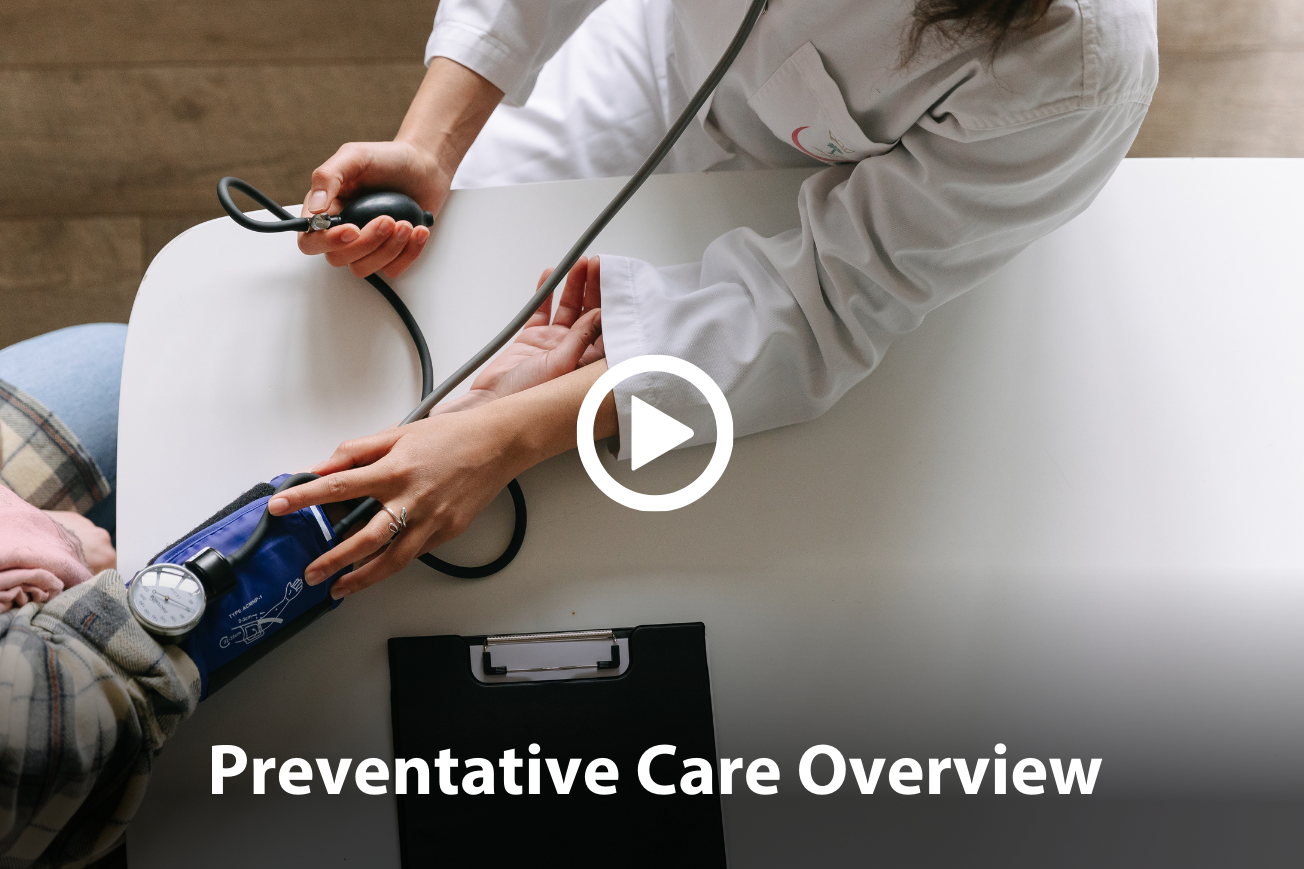
Virtual Visits
As a UPMC Health Plan member, you have access to virtual visits with a provider - right from your computer, tablet, or smartphone.
Using telehealth, you can receive:
- A rapid response to your health needs
- Advice on appropriate care
- Access to providers
Sign up for a MyUPMC account to conveniently manage the care you receive from UPMC providers:
- Schedule a video or office visit
- Communicate with your doctor's office via secure messaging
- Manage your appointments
- Renew your prescriptions
- View your test results and medical history
- Pay your bills
RxWell is a mobile app that's designed to help you address anxiety, depression, weight management issues, or stress with the help of a health coach. The app delivers evidence-based cognitive behavioral therapy techniques that you can access anytime, anywhere.
Answer a few questions, then have a virtual visit with a provider over live video. UPMC AnywhereCare provides access to treatment for a variety of nonemergency conditions:
- Cold and flu symptoms
- Sinus and allergy symptoms
- Bronchitis
- Sore throats
- Pink eye
- Rashes
If you need a prescription, the provider will send it to your preferred pharmacy. The copayment is generally less than the cost of an urgent care visit and much less than an emergency department visit.
Added Benefits from UPMC
Assist America
As a UPMC Health Plan member, you have access to a unique global emergency travel assistance program - Assist America. You can use this service if you experience an emergency while traveling 100 miles from home (including to another country) for less than 90 days. This service can connect you and your covered family members to doctors, hospitals, pharmacies, and more for no extra cost.
Active&Fit Direct
As a member, you have access to the Active&Fit Direct program for one low monthly cost.
- 8,000+ digital workout videos
- No long-term contract
- Ability to enroll a spouse/domestic partner
- 11,000+ fitness centers and studios nationwide, including:
To get started, log into upmchealthplan.com and see Health and Wellness Discounts.
LifeSolutions
Our Employee Assistance Programs (EAPs) help your workers balance everyday work-life demands and supports your managers as they address the challenges in today's workplace.
LifeSolutions is an employee assistance program (EAP) and much more. We use our expertise in human behavior in the workplace to help companies thrive. We connect employees to the resources they need so they stay focused and productive. We help managers and leaders face challenges in their day-to-day responsibilities. In short, LifeSolutions can contribute to achieving your company's bottom line goals.
We look forward to partnering with you.

Health Reimbursement Arrangement
What is a Health Reimbursement Arrangement? A Health Reimbursement Arrangement (HRA) is an employer-funded health benefit that reimburses employees for qualified medical expenses, including monthly premiums and out-of-pocket costs, like copayments and deductibles. These reimbursements are typically tax-free for employees.
Do FSA funds expire? Unlike other health spending accounts, only your employer can put money into your HRA. The money is available to you at the beginning of the year. Based on your employer’s individual plan structure, funds may or may not roll over each year.
Who is covered? An HRA covers qualified out-of-pocket expenses for you, your spouse, and your tax dependents if they are enrolled in the same health plan.
Medicare Services from NFP
Considering Medicare Coverage?
NFP is proud to support you when it comes to Medicare and understanding your coverage options. As trusted advisors in the individual markets for over 20 years, our team is comprised of experienced and knowledgeable agents specializing in Medicare coverage. We offer independent and individualized consultations to help you to:
- Understand your coverage options
- Determine if you are eligible for subsidies to lower your healthcare costs
- Establish a timeline for applying for coverage
- Choose a plan that fits both your lifestyle and your budget
- Find coverage that allows you to access the doctors and hospitals you want most
- Enroll in the plan that works best for you
The best part is - there is never a fee for our services.
Video Preview
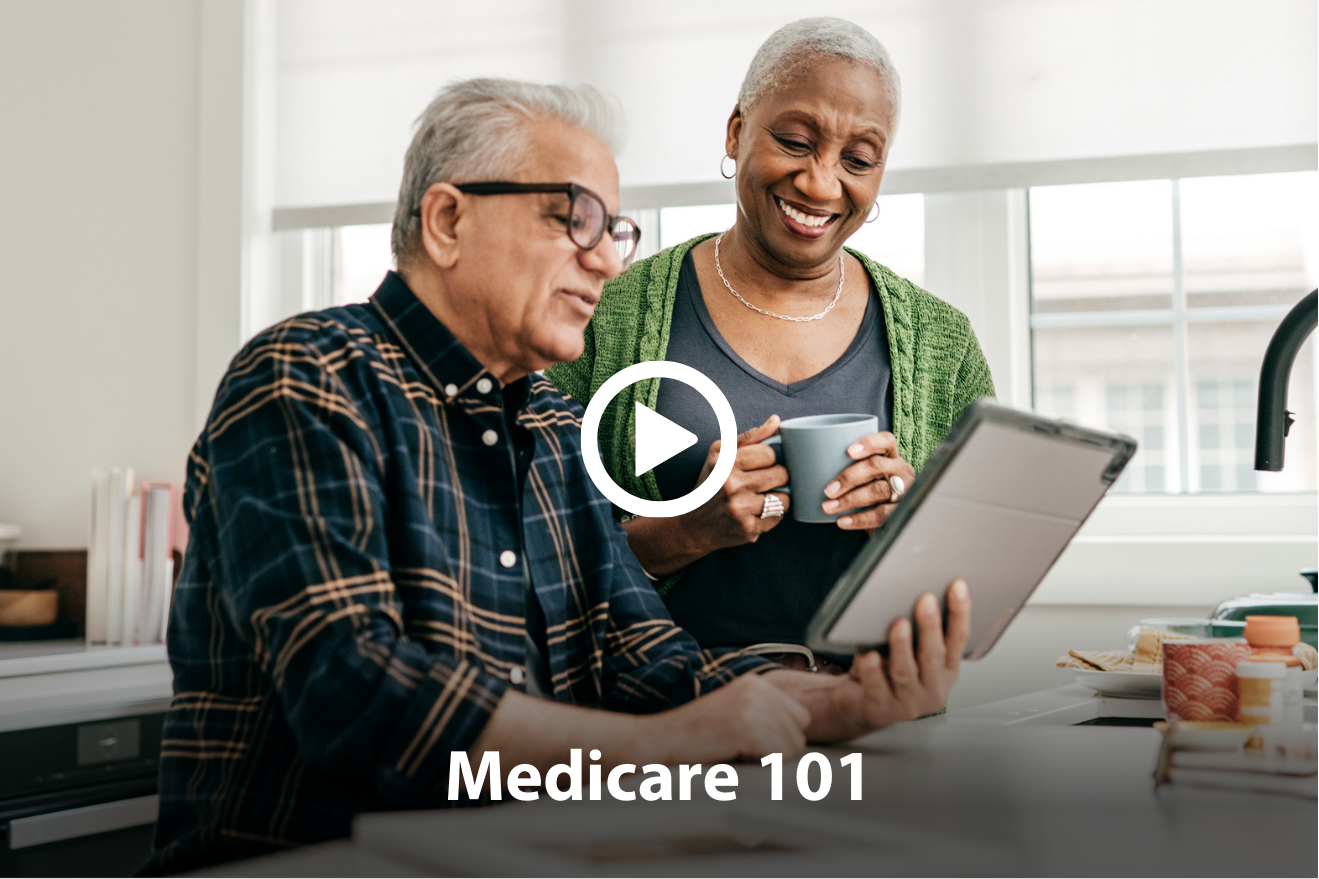
Dental
Did you know?
Oral health is more than just healthy teeth. Oral refers to the mouth, which includes the teeth, gums, and supporting tissues. Most oral health conditions are largely preventable and can be treated in their early stages.
Video Preview

Vision
Did you know?
Eyes can give doctors a clear picture of overall wellness. A comprehensive eye exam can detect early signs of serious health problems, such as:
- Diabetes
- Heart disease
- High blood pressure
- High cholesterol
- Glaucoma and cataracts
Video Preview

Life and AD&D
Life insurance can provide your dependents with a lifetime of financial security, and upon your death, can be used to pay off your debts, such as credit cards and your mortgage. This an employer-funded benefit available at no cost to you!
- Employer Sponsored at $100,000
- Protecting your family’s financial future
- Guarantee Issue: The guarantee means you are not required to answer health questions to qualify for coverage up to and including the specified amount.
- Benefits reduce 50% at age 70, 75% at age 75
Video Preview

Short-Term Disability
Everyday illnesses or injuries can interfere with your ability to work. Even a few weeks away from work can make it difficult to manage household costs.
This Short-Term Disability coverage provides financial protection for you by paying a portion of your income, so you can focus on getting better and worry less about keeping up with your bills.
Video Preview
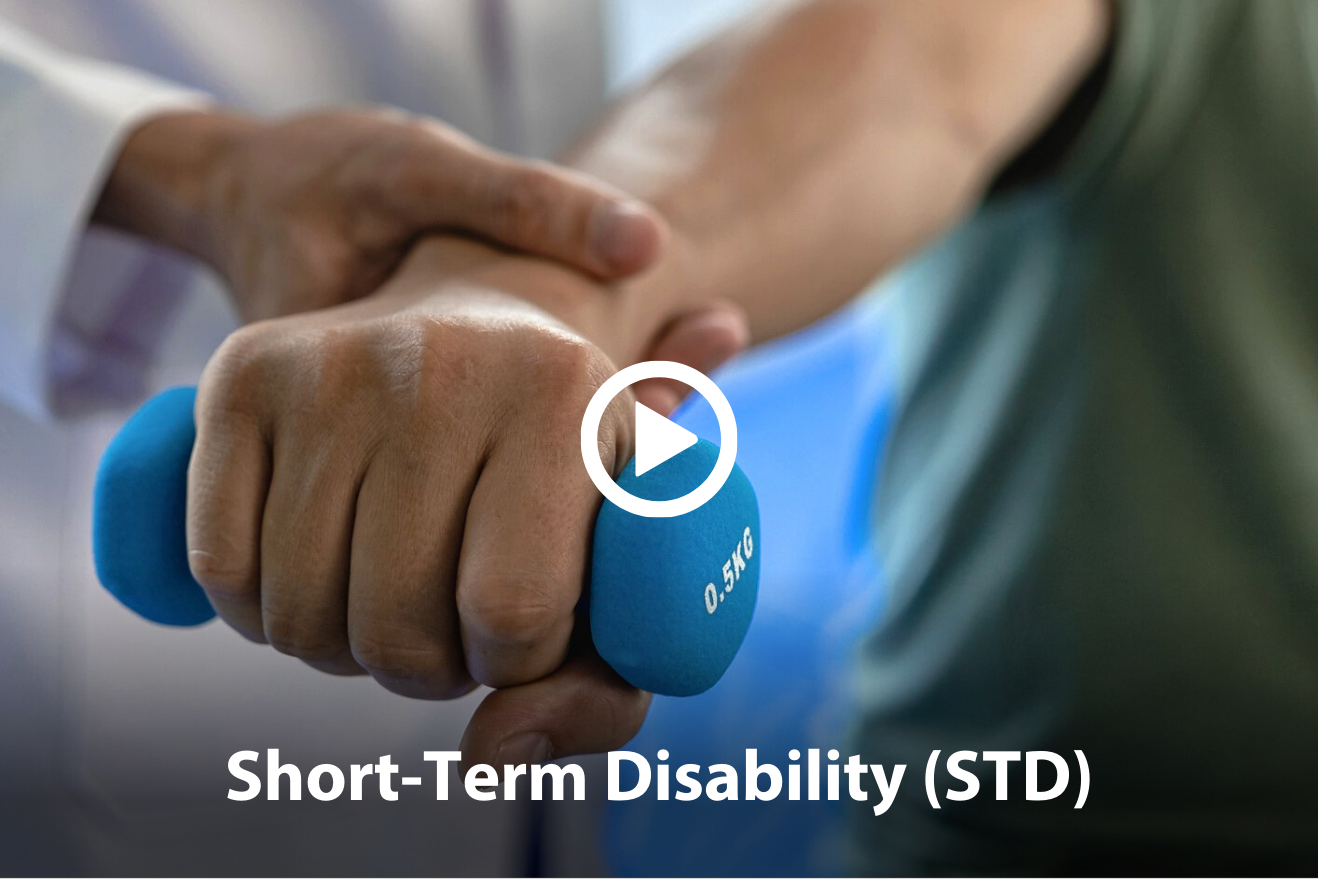
Long-Term Disability
This coverage pays a monthly benefit if you have a covered illness or injury and cannot work for a few months or longer. You are generally considered disabled if you are unable to do important parts of your job - and your income suffers as a result.
- Monthly Benefit of 60% of your salary up to $6000
- If you are out of work for more than 90 days, this benefit can protect your income if you are out of work due to personal medical reasons
Video Preview
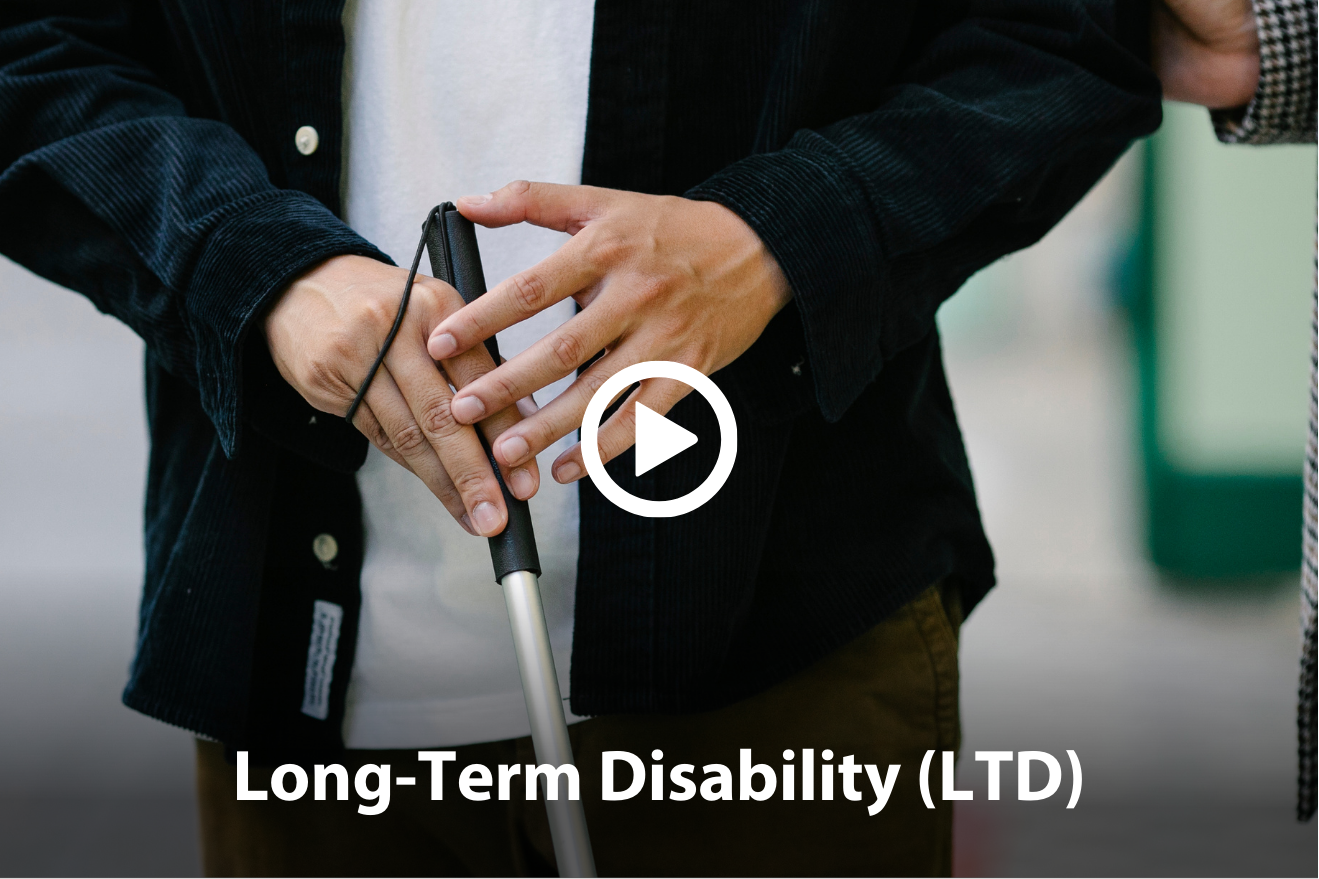
Accident
A serious injury can cost you a lot of money - not only in medical bills, but in things like income from lost work hours. If you get hurt, accident insurance pays you money that you can use to cover personal expenses, bills, and out-of-pocket medical costs.
Accident Insurance can pay a set benefit amount based on the type of injury you have and the type of treatment you need. It covers accidents that occur on and off the job, and it includes a range of incidents, from common injuries to more serious events.
Video Preview

Critical Illness
A critical illness insurance policy provides a lump-sum cash benefit upon diagnosis of a critical illness like a heart attack, stroke, or cancer.
The benefit can be used to pay out-of-pocket expenses or to supplement your daily cost of living.
Video Preview
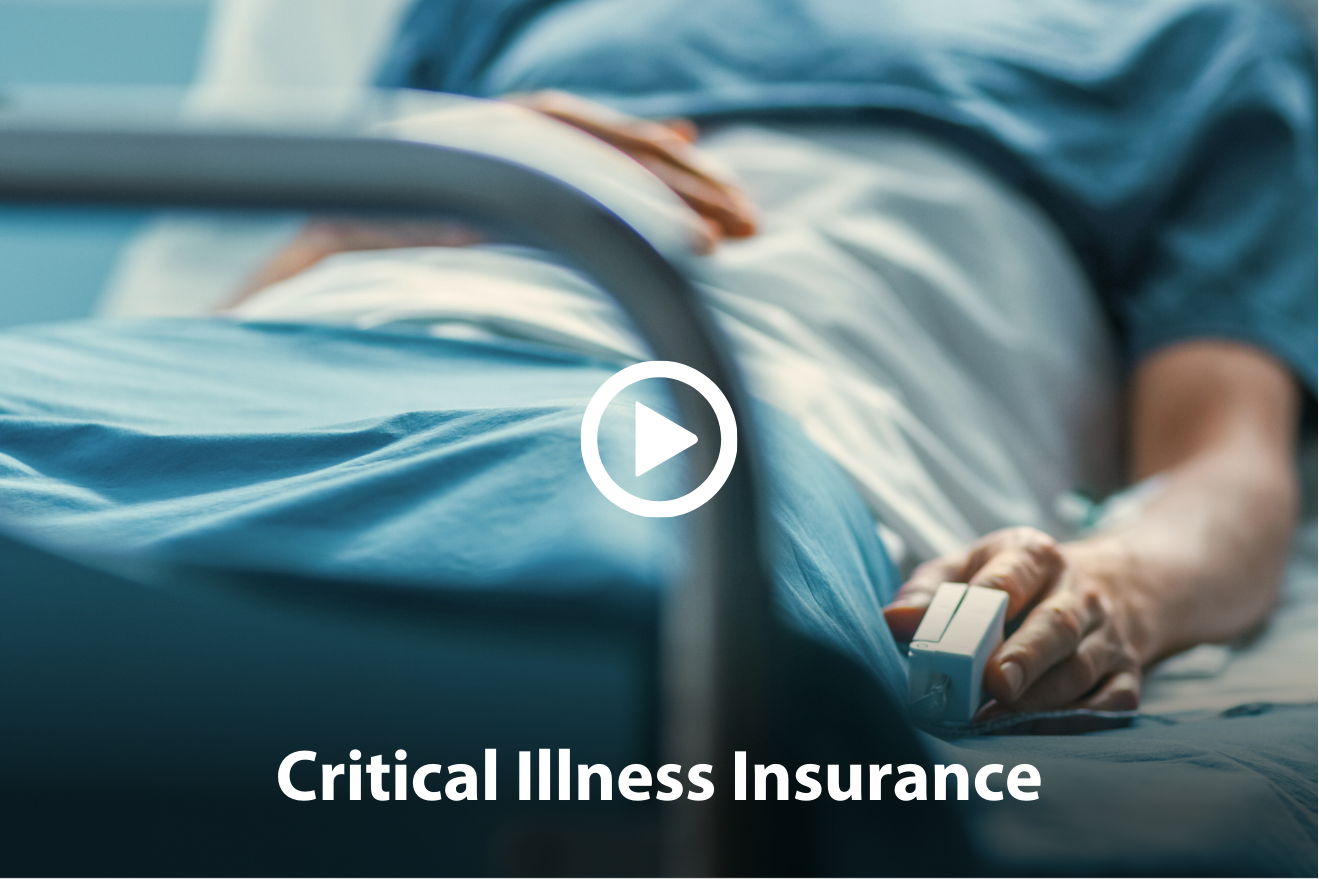
Contacts
You have dedicated agents ready to handle any situation in a discreet and confidential manner. Contact us for questions and needs such as:
- Understanding your benefit coverage
- Help finding in-network providers
- Assistance with prescription or pharmacy issues
- Questions regarding bills you receive from your doctor, specialist, hospital, or lab
- Claims you believe haven’t been paid properly
Account Team Contacts
Brianna Rainey
Account Executive
brianna.rainey@nfp.com
814-289-4232
Michelle Ruff
Producer / Sales Consultant
michelle.ruff@nfp.com
412-600-2341